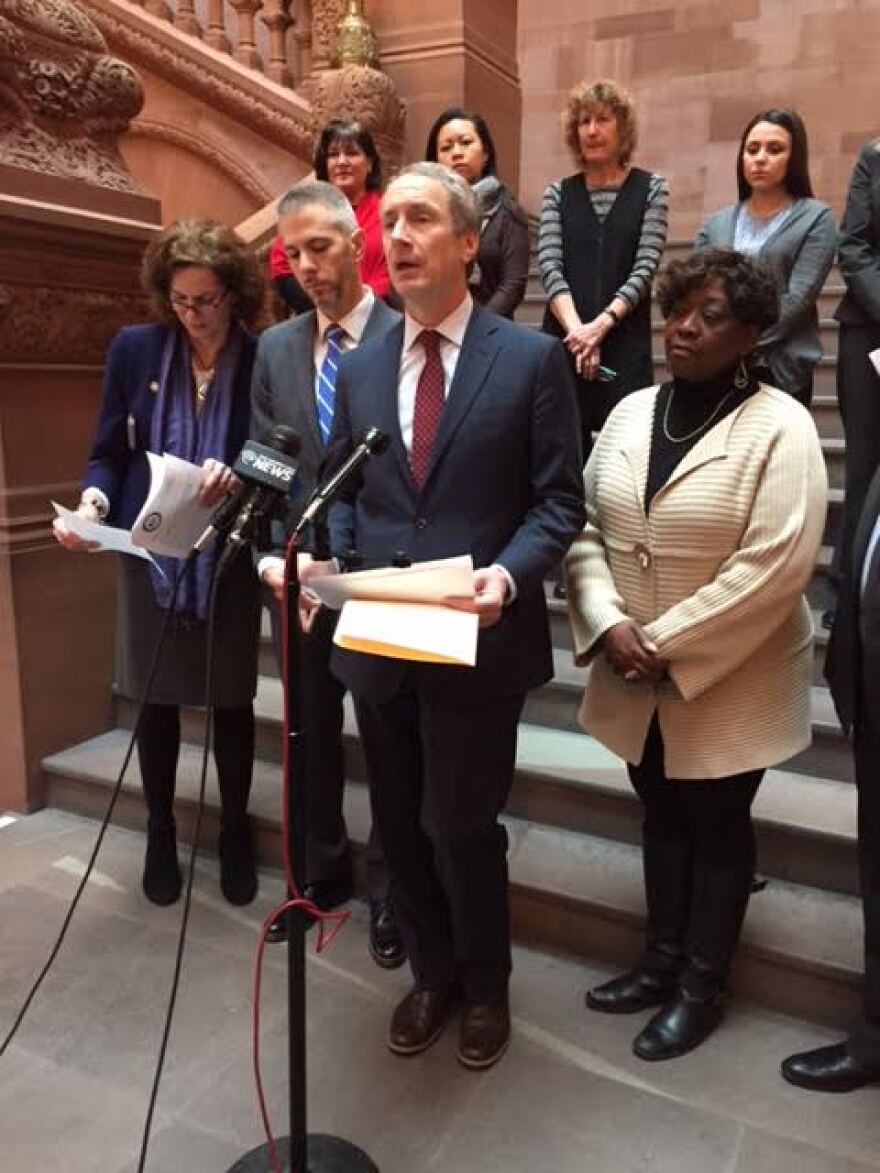Some upstate lawmakers are asking the state to step in and fund refugee resettlement programs that they said have been caught up in President Donald Trump’s travel ban and the resulting chaos.
The federal government funds refugee resettlement centers in upstate New York cities. But under the rules, the money for staff is based on the number of refugees coming in. When Trump’s travel ban briefly froze the entry of refugees from seven Muslim-majority countries, the funding for the resettlement centers dried up, too.
Assemblyman Sean Ryan is from the Buffalo area, where 1,800 refugees resettled in 2016. He said the ban sent “shock waves” through New York’s refugee resettlement system, and that people already in the United States still need the vital services.
“Without funding, the agencies wouldn’t be able to service the refugees who have already come to New York or are currently being resettled,” Ryan said.
Ryan was joined by lawmakers representing Rochester, Utica and Albany. They are asking the state to step in to bridge the gap and provide $12 million for the centers to keep helping people who have newly arrived in New York.
They said there already have been layoffs of resettlement workers. The Mohawk Valley Resource Center for Refugees has let go of six employees.
Jill Peckenpaugh is with the Albany branch of the U.S. Committee for Refugees and Immigrants. She said the work involves everything from locating apartments for new arrivals to teaching them about everyday activities, such as how to use a coin-operated washer at the laundromat or how to get on a bus.
Assemblyman Anthony Brindisi of Utica said New York owes a debt to its most recent refugees. He said the 15,000 or so who have resettled in his city in the past several years have revitalized whole neighborhoods.
“Many upstate cities would be an empty shell if it wasn’t for our refugee and immigrant comminutes,” Brindisi said.
Even though the president’s executive order on the travel ban has been stayed by the federal appeals court, Ryan said the flow of people settling in New York has not resumed in full, and the future is very uncertain.
“The light switch didn’t just turn back on,” Ryan said. “It’s a multi-week process to get you from a displaced person camp in Thailand into America.”
The gap in the settlement programs affects upstate because the federal government decides where to send the refugees and has determined that New York City and other downstate areas are too expensive.
The lawmakers said the refugees are fully documented and many have spent years in refugee camps while they were vetted to come to the United States.
The legislators, all Democrats, say Assembly Speaker Carl Heastie is supportive of their plan, but it has to also pass the state Senate, which is led by a coalition of Republicans and breakaway Democrats. So far, they have not taken a position.


